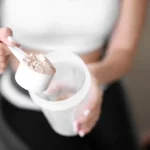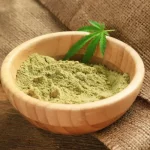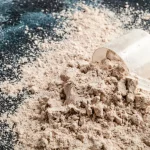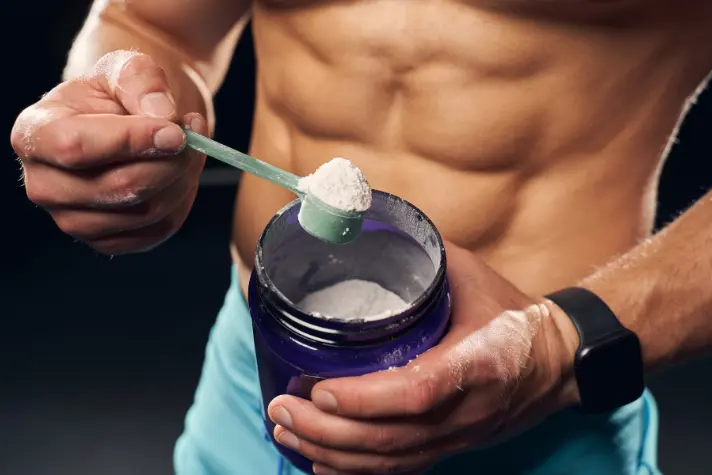
Ever been halfway through a grueling workout, reached for your trusty tub of protein powder, only to ask yourself “Does this stuff go bad?” You’re not alone. While it might seem like an eternal resource ready to fuel our fitness ambitions, even protein powder has its limits.
In the pursuit of muscle gains and recovery aid, many of us stock up on those big tubs without thinking about shelf life. But knowing when your protein shake goes from helpful supplement to questionable sludge can save you more than just a stomachache—it’s also key in getting the most out of every scoop of protein.
We’ll be sharing knowledge about protein powders’ shelf life, how to spot if they’ve gone bad, and tips for storing them right to keep them fresh as long as possible.
So, get your shaker bottle ready—we’re about to take a deep dive into the world of protein powders.
You may also like:
- Can Protein Powder Support Weight Loss?
- Where to Buy the Best Tasting Protein Powder
- 5 Simple Ways You Can Incorporate Protein Into Your Diet
Does Protein Powder Expire?
You may ask, “Does protein powder expire?” Yes, it can. Like other food items, protein powders have a limited shelf life before their quality begins to decline. While they might not necessarily become harmful or dangerous after the expiration date, their nutritional value and taste could diminish over time.
The exact lifespan of your protein powder depends on several factors such as the type of proteins used (whey, casein, soy), additives present (flavors or preservatives), storage conditions, and packaging method.
Expiration Dates vs Best By Dates
All packaged foods come with either an ‘expiration date’ or a ‘best by’ date stamped on them. These dates give you an idea about when to consume the product for optimal freshness and nutritional benefits. However, these are not hard-and-fast rules but guidelines provided by manufacturers based on ideal storage conditions.
An expiration date, usually indicates that you should stop using the product after this day because its safety cannot be guaranteed any longer while a best-by-date means that though safe to consume later too, the product might lose some flavor, nutritional value, and texture after this point.
Degradation Over Time
The components in your protein powder may degrade over the long haul due to different factors, including contact with air, dampness, and temperature variances. It’s worth noting that unopened packages stored properly will last much longer than opened ones.
Bacteria, mold, and fungi – all love moisture. So if water gets into your tub of protein, it’s going downhill pretty fast from there. But even without obvious signs like mold growth, a decline in effectiveness is likely since active compounds break down gradually making them less bioavailable.
Flavored protein powders can also lose their taste over time. If you’ve ever had a sip of an old protein shake and found it tasting bland or off, that’s the reason why.
The Role of Packaging
the package is sealed, the longer your protein powder can stay fresh. So, always make sure to keep it tightly closed.
Signs of Expired Protein Powder
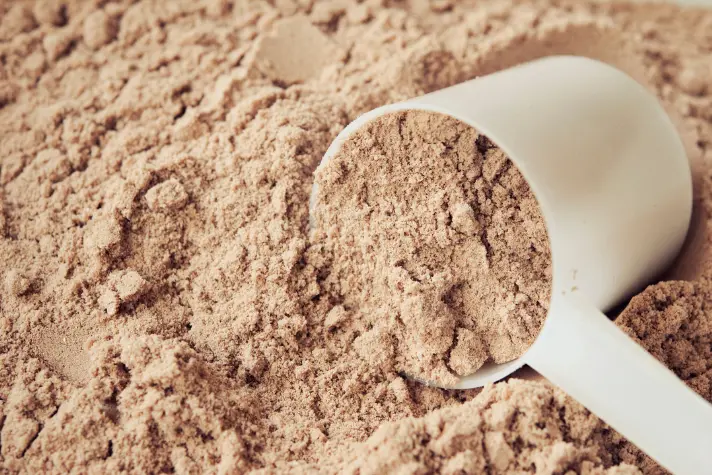
Knowing how to spot expired protein powder is crucial. Let’s delve into the telltale signs that your protein supplement might have gone bad.
A Change in Texture or Consistency
The first thing you’ll likely notice when a protein powder expires is a change in texture. This can manifest as clumps forming in the powder, which usually happens due to moisture exposure. Moisture triggers bacterial growth, leading to spoilage.
An Off-Putting Smell
If you open your tub of vegan protein and are greeted by an unpleasant smell, it’s time for a new one. A foul odor often indicates microbial contamination, turning your once-fresh-smelling product sour or musty due to chemical reactions occurring within the expired substance.
A Taste That Doesn’t Feel Right
Taste should be another factor on your radar; if it doesn’t taste right, trust your gut – quite literally. Over time, amino acids may break down, resulting in flavor changes not originally intended by manufacturers.
Powder Discoloration
Last but certainly not least is discoloration—a sign easily overlooked but just as important. Fresh powders generally maintain their color well throughout their shelf life. But once they’ve started going bad, some powders might turn darker due to oxidation. Oxidation is a chemical reaction that can degrade the quality of your protein supplement, and it’s also what leads to changes in color.
Remember, Trust Your Senses
Never overlook any shifts in your vegan protein powder’s texture, smell, taste, or color. These changes are usually a sign that the product has gone bad. Eating spoiled goods can cause health problems like food poisoning. So always be alert and stay safe.
Types of Protein Powder that Last the Longest
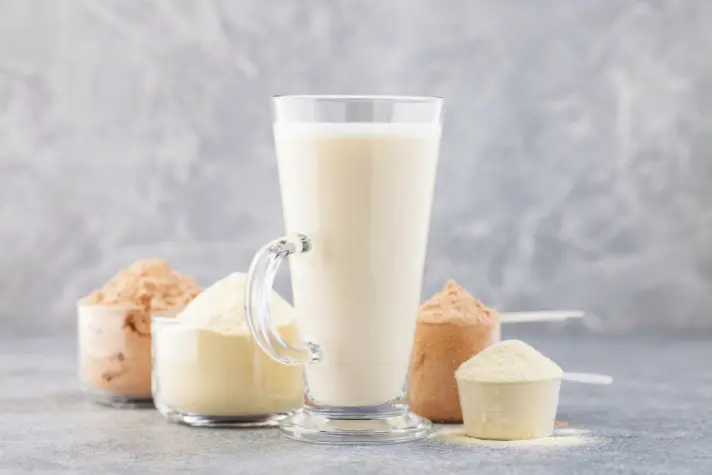
Some types of protein powder tend to last longer than others. Firstly, whey and casein proteins, both derived from milk, are among the longest-lasting. These powders typically have a shelf life of a year or more if stored properly. Their longevity can be attributed to their processing methods which often involve pasteurization or drying at high temperatures.
Whey Protein
Whey protein, specifically, tends to outlast other forms because it’s highly processed and has less fat content compared with its counterparts – factors that contribute significantly towards preserving its freshness for an extended period.
Casein Protein
The same goes for casein protein. Despite having slightly more fat content than whey protein, casein still boasts a lengthy expiration date thanks primarily due again to intensive processing techniques.
Hemp, Pea, and Peanut Protein
Vegan sources like hemp, pea (green and yellow), and peanut protein powder are healthy plant-based sources that have a long shelf-life that usually lasts about a year as well. Dried peanut butter protein powder is a trending type that doesn’t go bad very quickly, as it’s made from so few ingredients.
The shelf life of these vegan protein powders can also be affected by factors such as storage conditions and whether or not the product is opened. Flavoring agents and other ingredients can also dictate the shelf life of protein powder. Oftentimes unflavored protein powder can last longer because it’s free from both artificial and natural flavors and sweeteners.
How to Store Protein Powder Properly
The longevity and freshness of your protein powder heavily rely on how you store it. So, let’s delve into the proper storage methods that can help maintain its quality.
Choosing The Right Container
Selecting an appropriate container is vital for keeping your protein powder fresh. Optimally, you should utilize airtight receptacles as they impede humidity and oxygen from entering. Glass jars with tight lids or high-quality plastic containers are suitable choices.
Storing at Room Temperature
Maintaining a consistent temperature is crucial for prolonging the shelf life of protein powders. Storing them at room temperature helps keep their nutritional profile intact. Avoid storing them near heat sources like ovens or stoves as elevated temperatures can alter the protein powder and cause clumping due to condensation.
Avoid Moisture Exposure
Spoilage in protein powders often occurs because of exposure to humidity and moisture – which fosters bacterial growth leading to mold formation over time. To avoid this issue, always ensure your hands are dry before scooping out the powder. Even small amounts of water can initiate spoilage in food products including protein powders.
Paying Attention to Expiration Dates
You may wonder if expiration dates matter when we’re talking about powdered products. They do. Always check expiry dates printed on product packaging according to FDA guidelines. While properly stored unopened supplements might last past their expiration date, it’s best to consume them within the recommended timeframe.
Proper Handling
To avoid spoilage, take measures to prevent cross-contamination by using clean utensils such as a dry scoop for accurate and hygienic measuring. Always use clean utensils – fingers or damp spoons are a no-go. Stick with using a dry scoop for accurate and hygienic measuring.
Conclusion
Absolutely. It’s not a limitless resource but one that needs proper care and attention.
From understanding the signs of spoilage to storing it correctly—it all matters in keeping your supplement safe and effective.
The longevity game varies among different types of protein powders too. Know what you’re buying into!
Avoid chugging down bad products by being vigilant about their freshness, because every scoop should fuel your fitness journey, not hinder it.
About The Author:
Tyler Tafelsky is an endurance athlete and blogger at BetterTriathlete.com. In addition to writing about sports like cycling, running, and triathlon, Tyler also competes in ultra-distance cycling races at the professional level.

